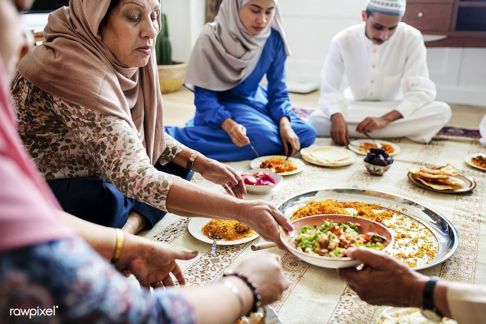
During the Ramadan month, many people organize dinner parties in the evening to break the fast together. In the context of these occasions, people buy more food, and quite often new clothes, bags and headscarves (particularly ahead of Idul Fitri, there is high demand for these items).
Meanwhile, in the context of the weeklong Idul Fitri holiday (a national holiday), there are millions of people leaving their homes in the urban and suburban areas of the country to visit their places of origin for a few days (bringing gifts with them). This typically gives rise to a great circulation of money around the Archipelago (from the urban areas to the suburban and rural areas).

Moreover, at the end of December 2022, the Indonesian government scrapped all social and business restrictions, and so there certainly is more room to consume at the moment (compared to the 2020-2022 period), although some people might still be somewhat cautious (avoiding crowds of people; which is a wise decision for those with fragile health). In fact, Indonesian President Joko Widodo signed a regulation a few weeks ago in which it is forbidden for ministers (as well as regional leaders) to organize Ramadan gatherings (that attracts crowds of people) as Widodo still fears new waves of COVID-19.
So, all the factors mentioned above allow room for accelerated consumption across Indonesia. And considering household consumption is the biggest contributor to the country’s gross domestic product (GDP), the whole economy will feel the impact.